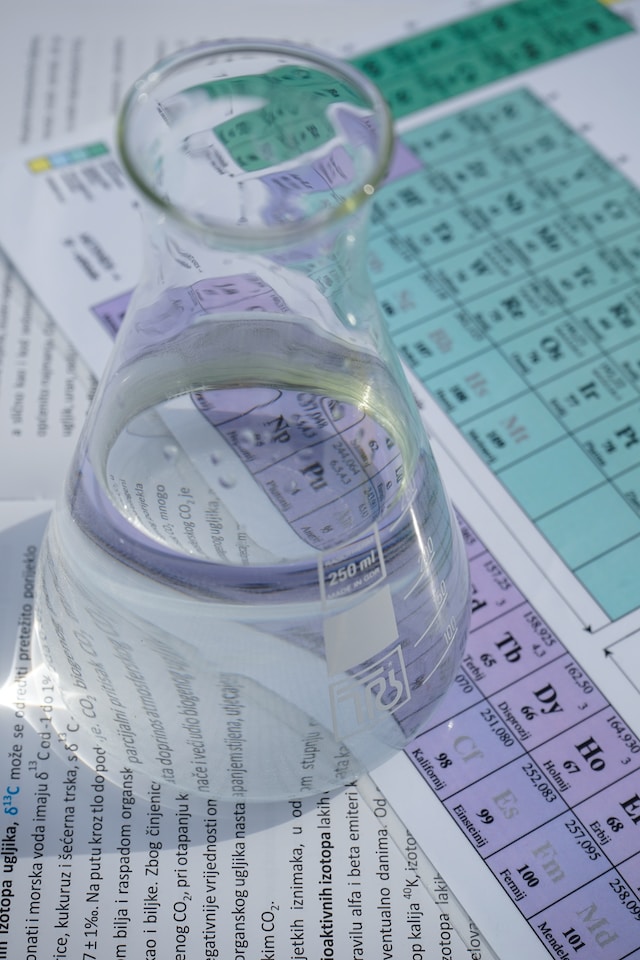The International Baccalaureate (IB) program is renowned for its rigorous academic curriculum, and one integral component of the IB Chemistry course is the Internal Assessment (IA). The IA is not just another assignment; it’s an opportunity for students to delve into the world of chemistry through hands-on experimentation, critical analysis, and personal engagement. In this article, we will explore key strategies for mastering the IA and achieving excellence in IB Chemistry.

Understanding the IA Requirements
The IB Chemistry IA is a comprehensive project that aims to deepen students’ understanding of chemistry concepts while honing their research and analytical skills. It’s not merely about conducting experiments; it’s about designing meaningful experiments that showcase personal engagement and scientific rigor. The IA is also a chance to apply theoretical knowledge acquired in the classroom to real-world scenarios.
Selecting a Suitable IA Topic
Selecting the right IA topic is paramount to success. Students should choose a topic that aligns with their interests, strengths, and the chemistry concepts they feel most confident about. While the temptation to choose a complex topic might be strong, it’s crucial to select one that can be realistically executed within the given timeframe and resources. Whether it’s investigating reaction rates, studying equilibrium, or exploring electrochemistry, the chosen topic should be a subject of genuine curiosity.
Planning and Research
Planning is the foundation of a successful IA project. Before diving into experimentation, students need to meticulously plan the entire process. This includes defining the research question or hypothesis, outlining the experimental procedure, and considering safety protocols. Adequate background research is essential, as it helps students understand the context of their experiment and identify potential variables that might affect the outcome.
Experimental Procedure
The experimental procedure is where theory meets practice. Clear and concise instructions are crucial to ensure consistency and accuracy across multiple trials. Paying attention to controlled variables and ensuring that experiments are repeatable is of the utmost importance. Recording data meticulously is essential, as it forms the basis for analysis and conclusions. Remember, a well-documented experiment is more likely to yield reliable results.
Data Analysis and Interpretation
Once the data is collected, it’s time to make sense of it. This involves organizing the data in a logical manner, creating appropriate graphs or tables, and performing necessary calculations. Graphs can be powerful tools for visualizing trends and relationships in the data. When interpreting results, students should look for patterns, anomalies, and correlations that can support their conclusions.
Evaluation and Reflection
The IB places a strong emphasis on self-assessment and reflection, and the IA is no exception. In this phase, students critically evaluate the strengths and limitations of their experiment. What went well? What could be improved? Additionally, reflecting on personal engagement is vital. How did the experiment deepen the student’s understanding of the topic? What challenges were encountered, and how were they overcome?
Meeting IA Criteria
The IB has established specific criteria for evaluating IA projects. To excel in this aspect, it’s important to thoroughly understand these criteria and ensure that each is met. The criteria include aspects like personal engagement, exploration, analysis, evaluation, and communication. Addressing each criterion effectively is essential for achieving a high score on the IA.
Presentation and Report Writing
Presenting the findings coherently is as important as the experiment itself. The IA report should follow a structured format, including an introduction, methodology, results, discussion, conclusion, and references. Clear and concise writing is key; avoid jargon and overly complex language. Proper referencing is crucial to give credit to sources and demonstrate academic integrity.
Tips for Success
Achieving success in the IA requires a combination of dedication, time management, and effective study strategies. Start early to allow ample time for planning, experimentation, and revisions. Seek guidance from teachers and mentors throughout the process. Collaborate with peers to gain different perspectives and insights. Don’t hesitate to explore online resources and reference materials, but always ensure the accuracy and credibility of the sources.
Conclusion
The IB Chemistry Internal Assessment is more than just a requirement; it’s an opportunity for students to apply their knowledge, skills, and passion for chemistry in a real-world context. By following these tips and strategies, students can navigate the IA process with confidence and achieve excellence in their projects. The IA is not only a stepping stone toward success in the IB program but also a chance to develop lifelong skills in critical thinking, experimentation, and scientific inquiry. Embrace the challenge, explore the possibilities, and unlock your full potential in IB Chemistry.
















Add Your Comment